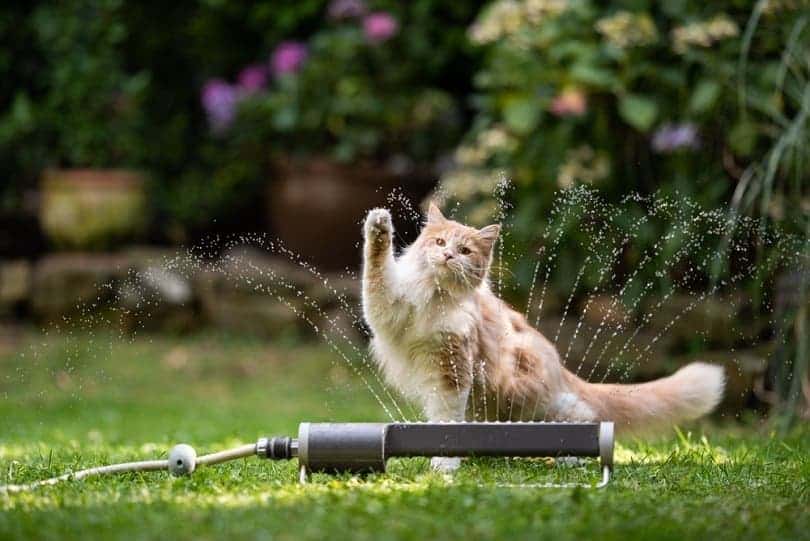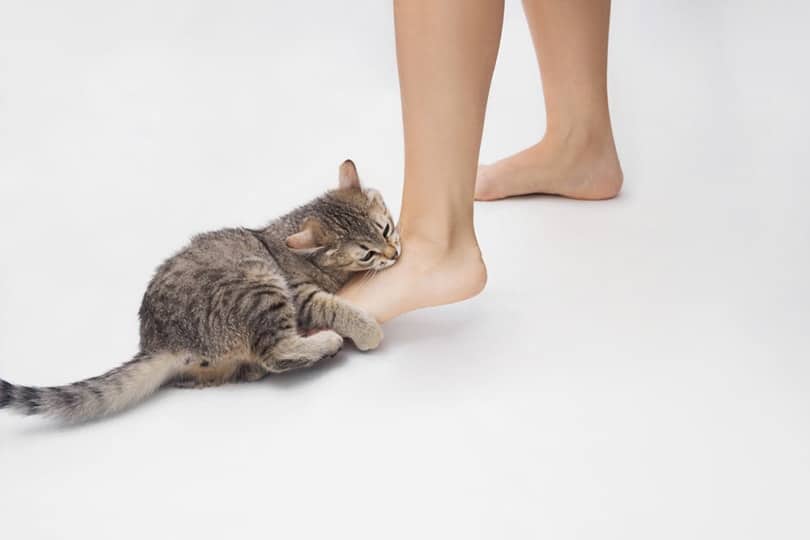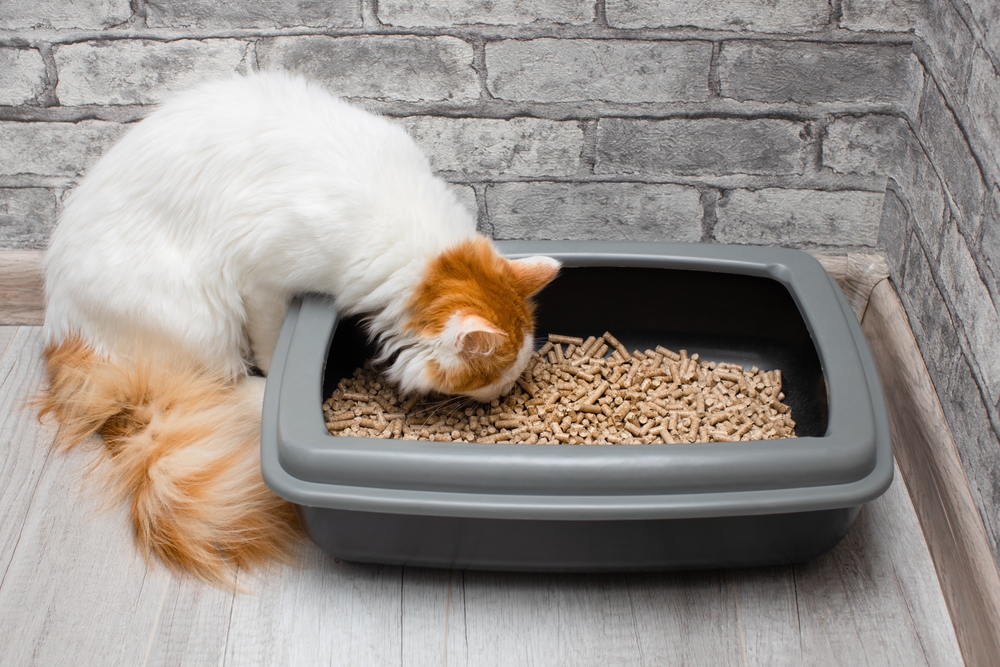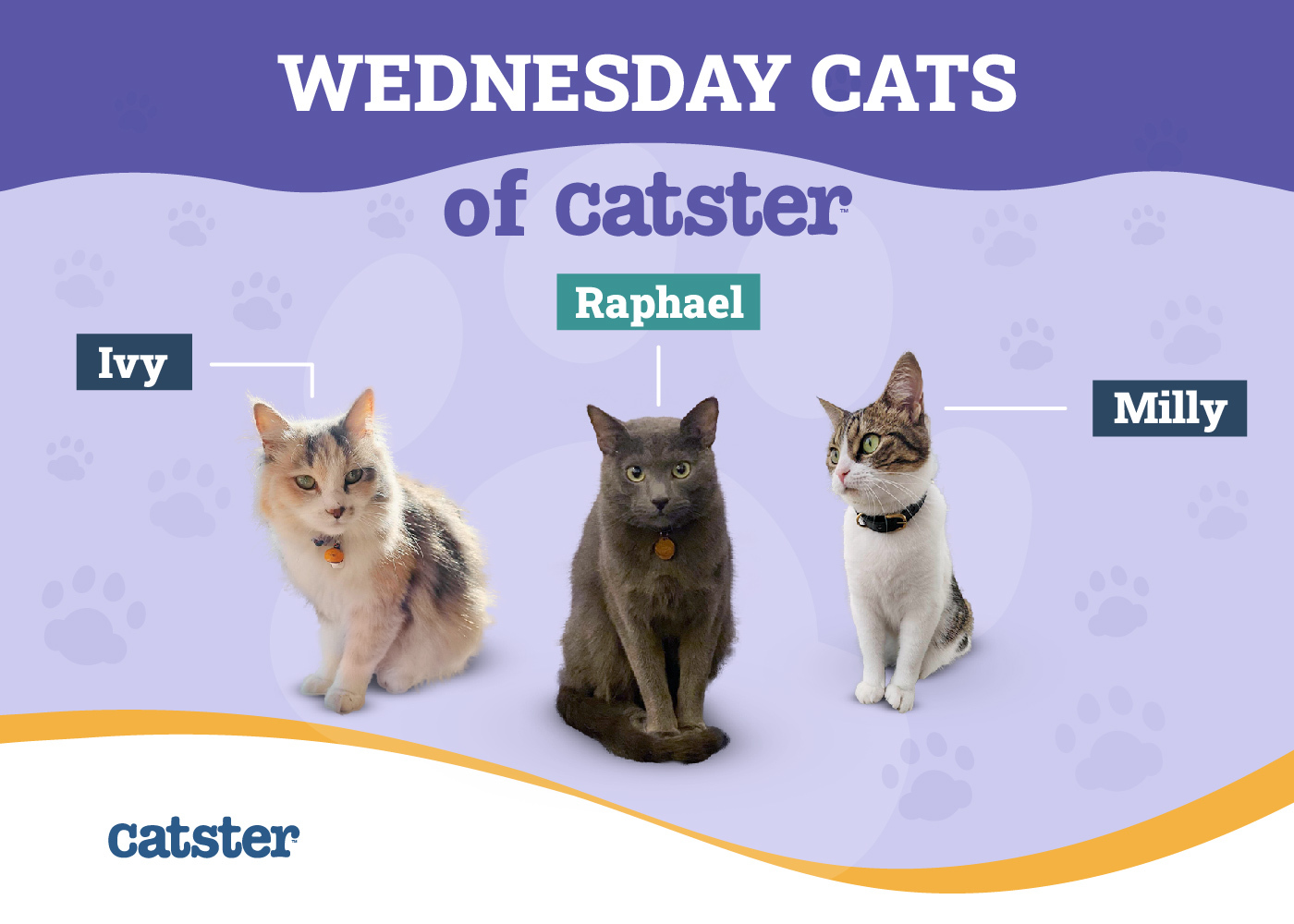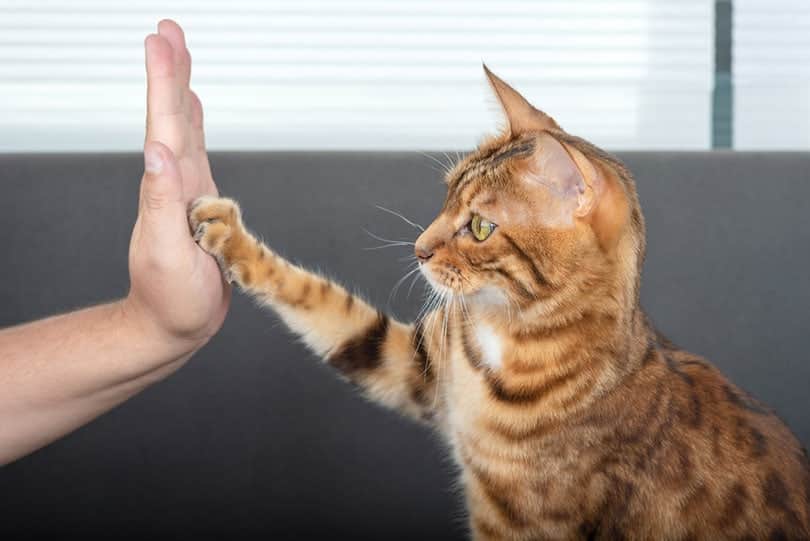For some cats, it is not rare that they will have a moment of wildness and suddenly charge around the house. For others, it can be a surprising and sudden occurrence. While it might simply be a case of your cat burning off energy, there are, in fact, many reasons that your feline friend might suddenly become hyper. Here are eight possible causes for this behavior, as well as some advice on what you can do to help curb their enthusiasm and potentially quieten them down or change their habits to better suit the whole family.

Top 8 Reasons Why Your Cat Is Suddenly Hyper
1. Not Enough Activity
When they’re not sleeping, which they will do for around 16 hours a day, cats are basically large balls of pent-up energy. That energy needs to go somewhere. If you regularly play with your cat or they can get outside and burn off this energy themselves, you may not see any incidents of unexpected or unexplained hyperactivity. If possible and if safe, let your cat out to play. Alternatively, get interactive toys, and spend some time every day playing with your cat. It will enhance your bond and keep their mind active, and it may prevent them from charging around the house in the middle of the night.
Looking for toys that will cater to the many needs of your cat? The Hepper Hi-lo Cat Scratcher is one of our favorite cat products that is sure to encourage your cat to get active. Its clever three-angle design offers multiple ways for your cat to climb, stretch, and exercise. Made of a sturdy plywood base and a replacement cardboard insert, this scratcher is an option that cats can enjoy for years to come. If your cat requires a little encouragement for self-play, the Hepper Catnip Mice Toy Set is a fantastic choice for their instinctual needs. Made with natural, bite-resistant hessian fabric and filled with organic catnip. Cats can satisfy their natural prey instincts while getting the physical activity they need to thrive. At Catster, we've admired Hepper for many years, and decided to take a controlling ownership interest so that we could benefit from the outstanding designs of this cool cat company!
Image
Product
Details
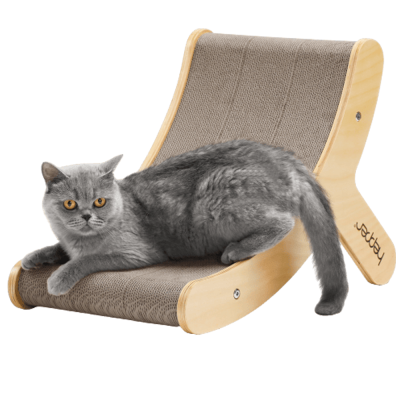
Hepper Hi-Lo Cat Scratcher
Check Price

Hepper Catnip Mice Toy Set
Check Price
2. Boredom
Playing with your cat can also help alleviate boredom. Cats need mental stimulation as well as physical stimulation, which is why interactive toys are such a good idea. Alternatively, try hiding toys around the house, and have your cat go find them. Change toys frequently. You can even keep a rotating supply of toys so that once your cat gets bored of a toy, you can put it away and take it out again in a few months.
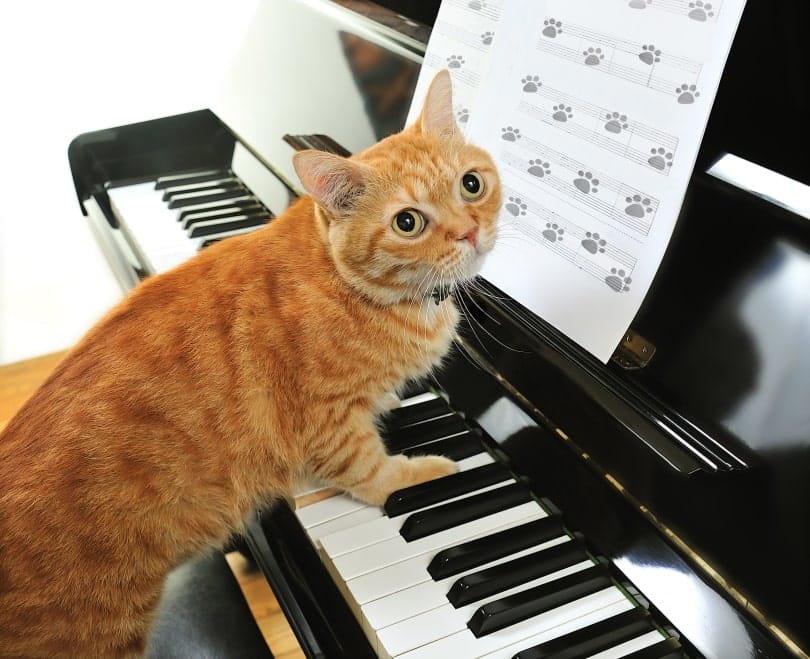
3. Illness
While a lot of illnesses and health conditions can cause your cat to be lethargic and see them sleep even more of the day away, some conditions will have the opposite effect. Conditions like hyperthyroidism can cause an increase in energy. In the case of hyperthyroidism, the thyroid produces more hormones than usual, and an excess level of the thyroid hormone can lead to your cat having more energy that needs burning off.
If you need to speak with a vet but can't get to one, head over to PangoVet. It's an online service where you can talk to a vet online and get the advice you need for your pet — all at an affordable price!
4. Fleas
Feline zoomies may not be a case of using up excess or natural energy levels but as a reaction to flea bites. This is especially true if your cat is hypersensitive to bites. Whenever they get bitten, it will be painful and cause discomfort. Your cat is effectively running it off, trying to distance themselves from the cause of the pain.
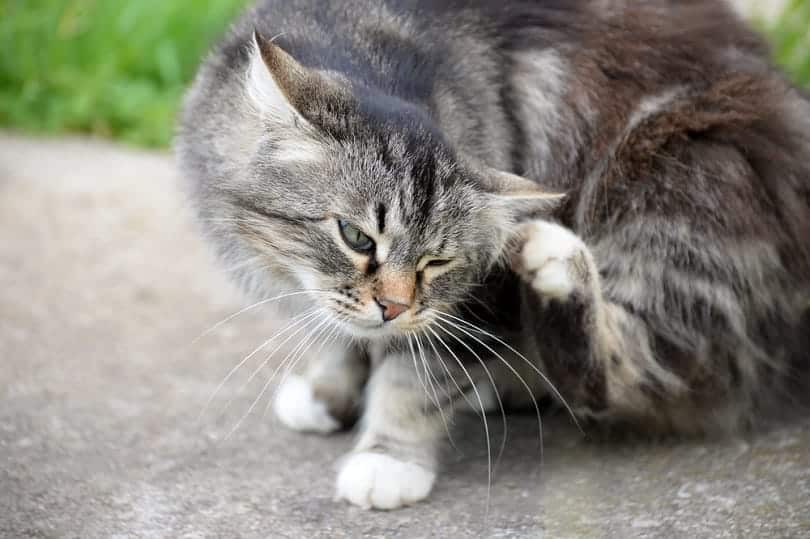
5. Cognitive Decline
Like humans and most other animals, cats can suffer cognitive decline, and this may present in any of several ways. Some cats sleep more, some become aggressive, and others may struggle to perform simple tasks. It can also cause your cat to become restless, which is especially pronounced at night simply because the house is quiet, and you can hear them more easily. Essentially, your cat is confused, and their instinct is to run and charge around.
6. Fear or Anxiety
Although more common in your kittens, fear and anxiety can be a cause of hyperactivity in adult and older cats too. Cats are both predators and prey and if something startles them, they will decide whether to stay and fight or to run away. Your cat running through the house might be a sign that some stimuli have caused them to run in fear in the hope of getting away.
Those caring for anxious cats understand the struggles and discomfort that their companions feel on a daily basis. The innovative bowl shape of the Hepper Nest Bed provides nervous pets with support and its high sides offer a sense of security, diminishing stress and worry. To learn about how to the Hepper Nest can provide solace to your cat, click here.
At Catster, we’ve admired Hepper for many years and decided to take a controlling ownership interest so that we could benefit from the outstanding designs of this cool cat company!
7. Overstimulation
Hyperactivity can present itself in several ways. As well as moments of increased physical activity and exertion, it can also lead to aggression and acting out. One possible cause of these problems is overstimulation. If your cat has spent a lot of time on your lap being stroked or petted and then seemingly suddenly turns on you, they may have had enough of being petted. Typical signs include a twitching tail and moving their mouth toward the source of the overstimulation.
8. Natural Energy
Cats naturally have long periods of rest with brief periods of high-intensity energy. It is how they live in the wild and how they have evolved. It’s also how they live even now that they are domesticated pets living as part of our families. Your cat may simply be running around because it’s time for them to be awake and they are naturally using their energy stores.
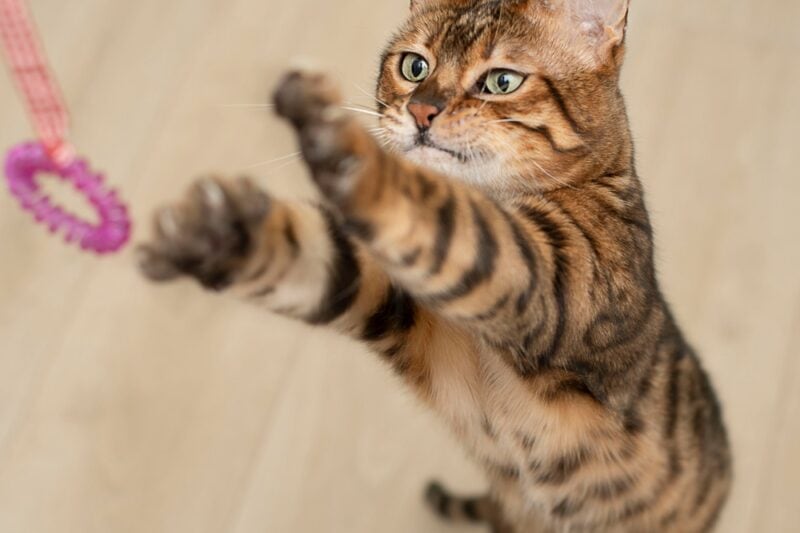

Conclusion
All cats are different, and while some owners are accustomed to their cats having 10 minutes of madness while charging around the house and bouncing off walls, other owners are less accustomed to these seeming outbursts. If your cat is showing signs of hyperactivity and you aren’t used to seeing this kind of activity from them, look for possible causes as listed here. Ensure that they are being physically and mentally stimulated, that nothing is causing them fear or anxiety, and that they have a healthy outlet for their natural energy. Check for fleas, and look for other signs of possible health issues.
Featured Image Credit: Nils Jacobi, Shutterstock

